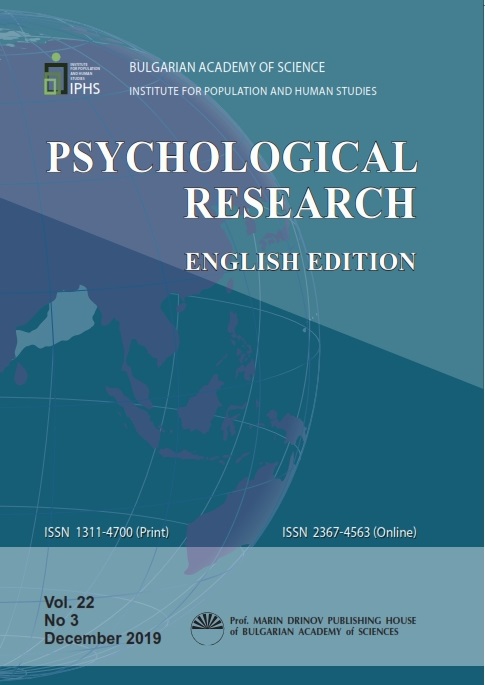Validity and Reliability of Methods for Assessing Cognitive Functions in Drivers
Validity and Reliability of Methods for Assessing Cognitive Functions in Drivers
Author(s): Rositsa Racheva, Zornitsa Totkova, Dimitar Shtetinski, Borian AndreevSubject(s): Social Sciences, Psychology
Published by: Институт за изследване на населението и човека - Българска академия на науките
Keywords: cognitive characteristics; drivers; methods for assessment; validity, reliability.
Summary/Abstract: An analysis of theoretical and empirical research has identified attention, memory, visual-spatial, executive functions as cognitive characteristics directly related to one’s fitness for driving. This article presents and evaluates the psychometric features of methods with proven effectiveness in clinical practice that have been modified and employed for measuring these functions in order to assess drivers. The sample consists of 134 individuals who were split equally into experimental and control groups comprising patients with cognitive disturbances and members of the general population respectively. The results indicate significant and high levels of validity and reliability of the methods we have constructed, with participants from the control group performing significantly better than the experimental group on tasks aimed at evaluating the cognitive functions noted above. Moreover, the results indicate that all subgroups of the experimental group – those marked by neurological disorders, psychiatric disorders, alcohol addiction, or drug addiction – perform worse than members of the control group at tasks related to the cognitive abilities we studied. The reliability of the methods is examined by means of the test-retest technique, and the results of the correlational analyses demonstrate significant and strong connections between how the participants performed on both the test and the retest. The data thus provide sound evidence that the methods we have constructed successfully identify people with disturbances in attention, memory, visuospatial, and executive functions, and that they may consequently be useful in future evaluations of people’s fitness to drive. These data can also provide a basis for developing programs aimed at prevention and intervention in the field of traffic psychology.
Journal: Психологични изследвания
- Issue Year: 22/2019
- Issue No: 3
- Page Range: 776-788
- Page Count: 13
- Language: English

